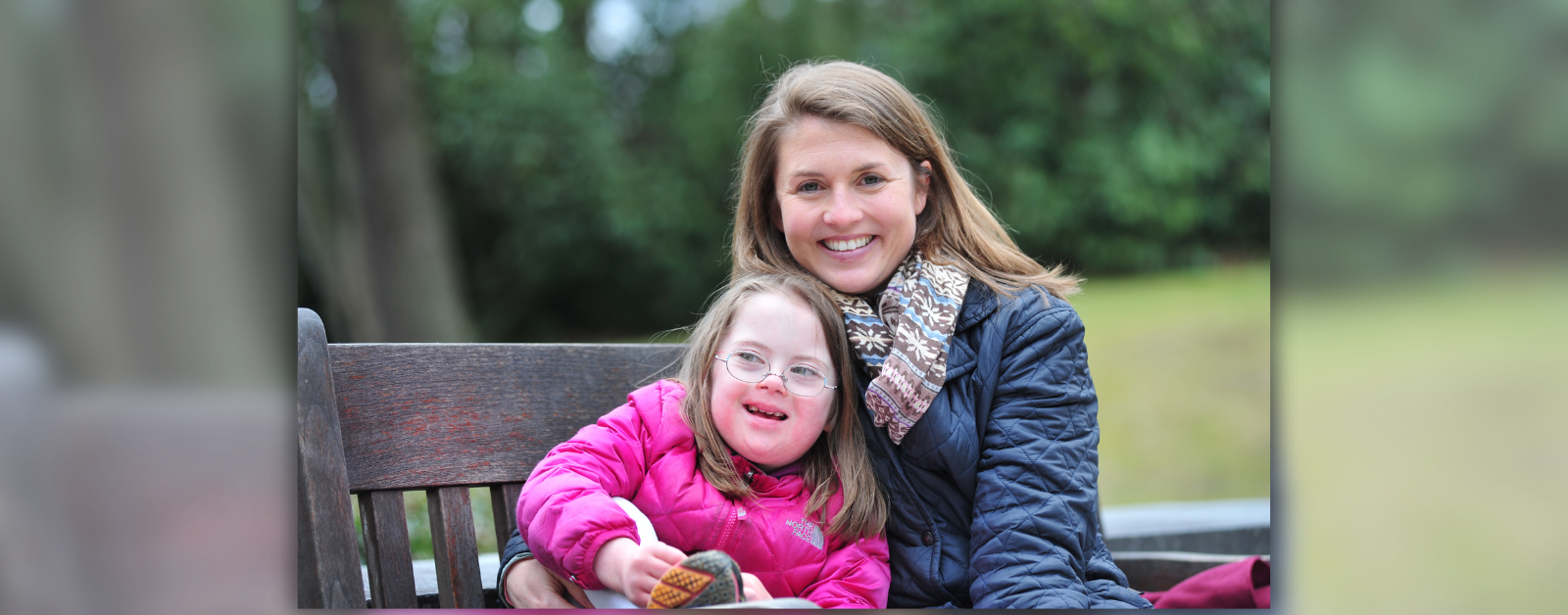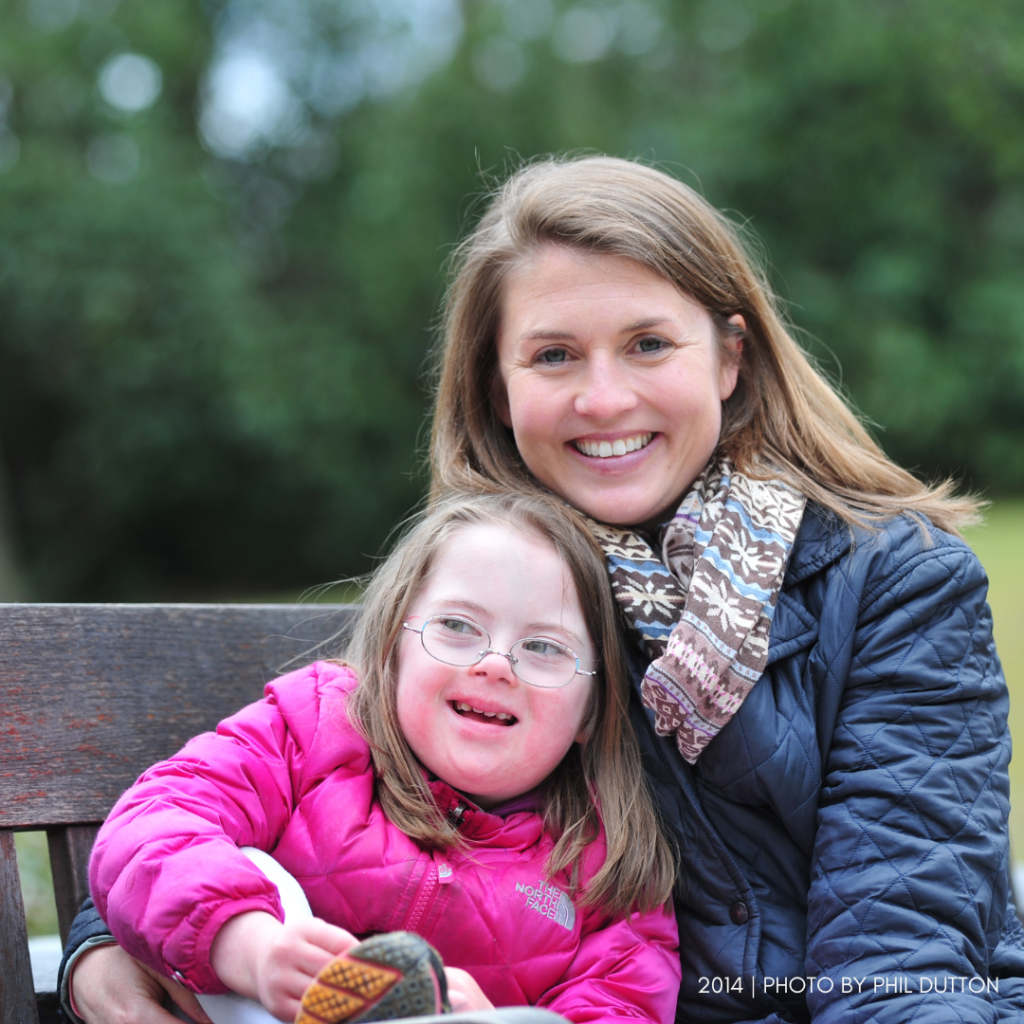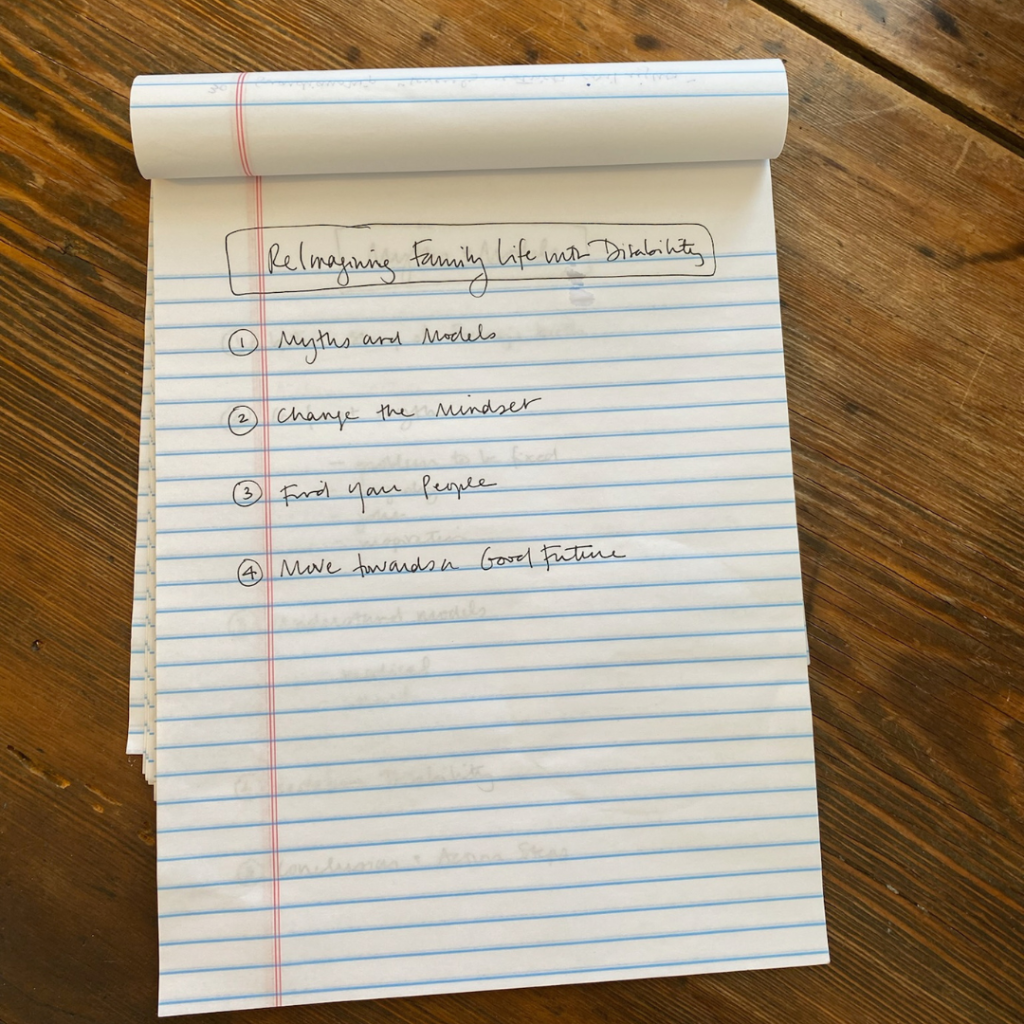Sometimes the future comes at us like an assault. A tornado of unanswerable questions that suggest chaos is about to ensue. That’s what it felt like when Penny was diagnosed with Down syndrome. And, to a lesser degree, that’s what it has felt like when we face all the questions about her life as an adult. Will she live with us? Will she go to college? Will she be able to find a job?
Throughout this season of wondering about the future, I’ve returned to those early years. I learned so much back then about how to envision a future filled with possibilities without fantasizing about a life that wouldn’t be. I learned about trusting in love instead of fear. I learned about the power of hope.
Nearly two decades ago, we decided to believe what other parents and activists in the disability space told us, that there was a good future ahead for our daughter and our family. We learned, step by step, how to live into that future. We are making the same choice now.
I want to share what we’ve learned so that other families can imagine and live into a good future for their families as well.
In March, I’m planning to film a four-part video teaching series called “Reimagining Family Life with Disability.” Right now, I’m sketching out the details of each video. I know what I want to cover—
- the myths and models of disability
- changing the mindset around disability
- building communities of support
- envisioning and moving towards a good future as a family
Is there anything you’d like me to cover as I prepare to share what we’ve learned?
More with Amy Julia:
Turning 18 and Guardianship Decisions
Idolatry of Intellect
Bureaucracy and Disability
Subscribe to my newsletter to receive regular updates and news. You can also follow me on Facebook, Instagram, Twitter, Pinterest, and YouTube, and you can subscribe to my Love Is Stronger Than Fear podcast on your favorite podcast platform.






This Post Has 2 Comments
All right, I’ll bite. Most kids with disabilities can and should live with their families but some can’t. Four months after she was born in 1990 we placed our profoundly brain damaged daughter Emily in a local pediatric nursing home where she lived until her death at seven. My daughter had no capacity to develop beyond a newborn level. Placing her out of our home at four months was the best decision we could have made for her and our family. I don’t believe we could have had two subsequent healthy pregnancies nor given Emily’s siblings a normal, happy childhood if we had had to care for her at home. I almost never see the stories of families like ours included in books or programs about having a disabled child. These stories need to be included too because children like Emily exist and their parents need to know they are not alone.
Thanks so much for sharing your story here. One of the books I read early on in my own exploration of disability and theology/ethics/philosophy was Hans Reinders’ Receiving the Gift of Friendship, in which he writes about a young woman who existed in a similar state as Emily. This book pushed my own thinking farther, and you are so right that any discussion of disability and family life needs to acknowledge and honor the diversity of experiences, which include experiences like your own.